|
This sign hung in my various offices for over a decade. I guess you could consider this a motivational poster of sorts, but I think it was actually a very early meme. These two sentences have become my fundraising mantra. Something I repeat to keep myself focused and to cope when things get rough.
Because I’m both a nerd and a yogi, I looked up “mantra” in the Oxford English Dictionary. The term “mantra” comes from Sanskrit and the root words mean basically: "thought support" or device to support thought and action. This is exactly what this simple sign has been for me throughout my career. Even the repetitive rhythm of it helps in its function as thought support. The main thing is to keep the main thing the main thing. Raising money is the main thing. Let me tell you the story of this mantra: To give credit where it is due, the original sign was created for me by Mark Nelson, who was the Treasurer for the Libertarian National Committee (the Libertarian Party) in 2004-2005. So, he was a board officer for the organization I was working for at the time. I was the only full-time fundraiser for the national organization and I was only 23 years old. Their theory was to hire smart young people who would be “cheaper” salary-wise for the DC area. The exchange was that I would get a ton of valuable training and experience and they would get energetic labor. However, I was overwhelmed and I think Mark sensed it. I was managing a conversion from an antiquated custom donor database to Raiser’s Edge. I was producing a monthly newsletter for our recurring donors. I was helping to plan the national convention and scouting locations for the next convention. I was recruiting and training paid callers to renew memberships via phone and managing our intern program. With the help of a consultant, I was managing monthly direct mail campaigns and planning fundraising events. Then, because the LP was a political organization, staff frequently got pulled into controversies and political discussions. I’m tired and anxious just typing about everything I was called to do. As treasurer of course, Mark had a keen interest in keeping me motivated. On a trip to our DC office, he walked in and taped the sign to the wall above my computer monitor and explained what it meant. The “main thing” meme helped me to prioritize my work and keep my head on straight. It also reminded me that the officers of the organization supported me in my main role. My job as a fundraiser is revenue generation. Everything else must fade in comparison. When I left the LP, I took this simple sheet of copy paper with me and posted it in my new office at the University of South Carolina. This concept continued to keep me focused as I was hiring 110 student callers per semester to raise $1.47 million via phone annually. When I took a job as behind-the-scenes project manager with RuffaloCODY (now Ruffalo Noel Levitz), I would see the sign and feel sad. I knew then that I missed frontline fundraising. I missed chasing down a dollar goal. It helped me navigate my career back to raising money. At some point in changing offices, the original paper got ragged and I disposed of it. But, when I was at Southern Miss and we tripled our annual fund income in one year, I recreated the poster for some of our gift processors who were overwhelmed and wanted a reminder of how their work connected to the big picture. It became a bit of an office-wide mantra. Now that I’m back at a small shop, I think of this mantra often. I try hard to “stay in my lane” and keep the focus on fundraising. There is much to do, the need is great, and it is easy to feel like you are never doing quite enough. But, the main thing . . . is to keep . . . the main thing . . . the main thing. And, raising money . . . is the main thing. At any organization, you will be asked to do many mundane things (I collectively call them TPS reports). These include: expense reports, submission forms, demographic changes in database, meetings, etc. Do these things, but strive to automate those tasks as much as you can so that they don’t distract you from the main thing: raising money. At some organizations, especially those that are not organizationally mature, fundraisers will get pulled into political discussions and controversies. Continue to come back to mission and how the main thing (fundraising) supports that mission. When people around you go low, you go high. Keeping focused on raising money is the high road. The main thing is to keep the main thing the main thing. Raising money is the main thing. What’s your fundraising mantra? How do you keep yourself focused? Comments and questions are, as always, welcomed and encouraged! Cheers, Jessica Cloud PS – If you liked this post, you might also like these:
PPS - If you found this article helpful, please comment and let me know. Also subscribe to Real Deal Fundraising so you don't miss a post! You'll get my guide to Call Center Games for Free! Part of my mission at Real Deal Fundraising is to support young fundraising professionals so that they stay in this industry and grow their careers.
To that end, I’ve been thinking about which skills I would advise a new fundraising professional to cultivate in order to have the best chance of career success. Here’s my list in no particular order
Most of these are abstract skills and really more traits that you can cultivate. All of them can be developed and maintained. Of the eight, I believe “Integrity” is the most important because it is foundational. The rest simply don’t matter without it. Second most important, in my estimation, is curiosity because it is engine behind your growth in this industry. Even if you have all of the other skills, you won’t keep up with the changes and trends without the drive to continually learn. To that end, I’ll continue to provide information and resources here on Real Deal Fundraising so the professionally curious can get the ideas they need to succeed as fundraising professionals. Did I overlook an essential fundraising skill? What would you add to this list? Comments and questions are, as always, welcomed and encouraged! Cheers, Jessica Cloud PS - If you liked this post, you might also like these:
PPS - If you found this article helpful, please comment and let me know. Also subscribe to Real Deal Fundraising so you don't miss a post! You'll get my guide to Call Center Games for Free! Connecting with a donor or potential donor is so vital before you ask for a gift. It's like removing many of the roadblocks between you and that "YES!" response you want.
People want to give to people they like. It's not much of a secret. Ultimately, as a fundraiser you are a conduit for the relationship between that donor and the institution (not with you personally) but they must enjoy speaking with you to want to continue a relationship with the institution. This is an important skill for any fundraiser to develop, from phonathon callers on up to executive directors, deans and development officers. I have been to MANY call centers where they use the same tired rapport-building questions year after year after year. We cannot let this happen. No one wants to spend their precious time telling a new person why they haven't been back to campus lately just like they did last year. Bad rapport-building has the opposite effect on the donor than that which we wish to cultivate. The first rule of building rapport is it must be DIALOG not MONOLOGUE. You must ask questions that will solicit meaningful conversation and back and forth. You (no matter if you are a student caller or the Vice President of Advancement) must not deliver a litany of great-stuff-happening-at-our-institution without stopping for breath. So, following this rule, we must construct meaningful rapport building questions. The second rule about rapport building is that these questions get stale. Every year (at least) new rapport builders should be generated and put into rotation. Here is some guiding criteria for generating these questions. Rapport building questions should:
What are some examples of strong rapport-building questions?
Does your rapport building need a refresh? Do you have some favorite rapport-building questions that I forgot to mention on my list? Comments and questions are, as always, welcomed and encouraged! Cheers, Jessica Cloud PS - If you liked this post, you might also like these:
PPS - If you found this article helpful, please comment and let me know. Also subscribe to Real Deal Fundraising so you don't miss a post! You'll get my guide to Call Center Games for Free! I know it's so superficial and perhaps shallow.
But nonetheless, it's true. One of the reasons that I love being a fundraiser is the FOOD. It's no secret to anyone in the industry that we fundraisers love to eat. We like to take donors to dinner, to lunch, to have breakfast, to have coffee, or to meet for dessert. We like to do anything that will help us break bread with people because it is such a primal way to build relationships. It's a core aspect of hospitality to provide food to someone we are grateful for. And it is just a nice perk of the position. Fundraising is tough work and you get told no an awful lot, so getting a yummy meal brings balance to the universe. And inevitably as a fundraiser, you'll end up involved in event planning. Attending a tasting session for an important event is so much fun. I hope for each of you that one day you have enough positive career karma to get to sample delicious menus including desserts and wine. It's bliss. Truly. Despite the fact that it's a superficial reason to love my career, the food is some small compensation for having to ask people to share their hard-earned funds with our organizations. Bon appetit! When I was a young call center manager, I thought I would end up being a faculty member at a university. That was my career goal. I was totally opposed to making fundraising into a career rather than a job.
Then, one night I decided to mess with my callers just a bit. I had a cubicle in the corner of the call center. I shouted over the wall at around 8:00 PM that I had moved them ALL into credit card calling pools. Of course, since everyone they were talking with had both given before and given via credit card, they were excited. Sure enough, gifts picked up and in that last hour, the credit card rates were over 70%! The secret was that I hadn't done anything at all, except changed their expectations. At this point, I realized that I really liked the strategy and psychology in this field. I liked examining results and figuring out where things worked or didn't work and why. As I grew in my career, I loved the organizational challenges thrown at me. You have to have a strategy when you are trying to clean up a building project where naming opportunities might have been double-booked. Most of all, monitoring my own mindset is part of the strategy that keeps my mind stimulated. Smile when you dial is one of the most important lessons I ever learned. I never do the same thing day-to-day and there always a new challenge on the horizon, requiring a fresh strategy. If you are interested in the other reasons that I love being a fundraiser, check the posts out:
I was a bullet journal skeptic. Lots of smart friends that I respected seemed to be jumping on this bandwagon but it seemed to me to be a way to waste a lot of time color coding with fancy pens. So, I asked on Facebook for someone to explain to me what all the hype was about. If you aren't familiar with the concept of a bullet journal, watch this video below. Then you can read about my conversion to bullet journal or bujo (as the bullet journal junkies call it) below the video. After reading comments from my friends and watching this video and others, I decided to try using a bullet journal as a way to help me organize my work more effectively and to integrate my home life and work life. I've been doing it now for a little under a month and I'm a fan. Here are some reasons why I recommend you experiment with this method.
If you love your bullet journal, let me know why in the comments below. If you want to try it out, do so and report back here to tell us how it's working for you! Motivation Monday: Reasons I love being a fundraiser, Colleagues and Donors #loveyourcareer10/3/2016
Fundraising is about relationships. If I had a nickel for every time I’ve heard that, I wouldn’t need to work and I could make a major gift to my favorite organization today.
The thing is – it’s true. Not only do fundraisers serve as the conduits between donors and the institutions that they serve, but we also work collaboratively within our offices, with program staff, and with others in our industry. One of the reasons I love my job is that it has given me these amazing relationships. You get to know donors on a personal level and even when you leave one organization, sometimes you remain friends with them. Your donors have incredible stories and you have a platform to discover those stories and share them. Many donors, especially board members, have become personal mentors to me. We are also lucky to work in an industry that loves to share best practices and business information. Especially in higher education fundraising, we aren’t often competing for the same donors. That means we can help each other out substantially. Many of my closest friends are also fundraisers and we frequently solicit advice and tips from each other. Not all donors and co-workers become your friends. But, it’s a wonderful career that is focused on friendship. I would put up with a good deal of frustration to get the collection of amazing donors I’ve met and colleagues that I’ve relied on over the years. I've named this column "Thoughts for Thursday" and mostly it gives me a weekly space to bring up whatever topics I want to discuss. But, this week, I asked myself, "What's really on my mind?" I have a few things that have been buzzing around my brain lately.
But, I'd also like to hear from you. What are you struggling with? What solutions are you lacking right now? What trends are you baffled by? What ideas are you really digging right now? Please comment and let me know. Here are some of the bees in my bonnet:
Again, what's really on your mind? Watched any good TED Talks about philanthropy and fundraising lately? Read any inspirational articles? What's the question you wish you had an answer to right now? (I'm back!! Last week was crazy but the full moon has passed and hopefully the insanity level has slowed in all areas of my life.
I've decided to make Motivation Monday into "Reasons why I love being a fundraiser" for the next ten weeks. It will challenge me to articulate the reasons why I love my profession and hopefully it will inspire and motivate you to love your career. My first reason why I love fundraiser is the travel. For a long time, I stayed away from the travel and thought it would hold me back in my career. But in my current position, I am the lone professional fundraiser for an institution and I must travel. Now, I embrace the travel and see it as a benefit. Sometimes I travel with my husband and kids (we homeschool) and sometimes I travel alone. Either way, in this past year, I've been able to visit amazing places and meet amazing donors. (All photos above were taken by me on work trips.) I was able to have breakfast by the Pacific Ocean in Santa Barbara one morning before flying home -- a rare contemplative moment of solitude with nature for this busy mom. I've taken my family on a train from Oakland to Portland and we woke up in a winter wonderland watching eagles dive into lakes amongst snow-covered Douglas firs. I feel certain these are experiences that we would not have had if I wasn't a fundraiser. And this literary nerd has gotten to see the pew that Ralph Waldo Emerson used to sit in when he attended church in Concord. I've taken my 7 year old daughter to see the ruby slippers from The Wizard of Oz at the Smithsonian. She also got to visit FAO Schwartz before it closed forever. Of course, we could have done this on our own as a family, but it isn't likely we would have been able to afford it. These magic moments happened because I am in a industry that still depends on a values face-to-face contact. Traveling to visit with the amazing folks that support the institution that I work for is its own reward and its an amazing perk. Stay tuned for another reason next Monday and more great content coming up all week. You might have seen the various memes with 10 things that require zero talent. It’s a great list. Here are the 10 things:
It’s worthwhile to look at each of these and evaluate yourself as to whether or not you are maximizing this category for career development and self-improvement. I try to cultivate all of these qualities and habit in myself and my work, but there are ones that stick out as potential areas of improvement. For instance, I know that if I get bored or feel helpless/hopeless in a role, I will check out in the passion area. Also, my “coachability” varies based on the demeanor and presentation of the person doing the “coaching”, if you know what I mean. I could stand to work on both of those things. Beyond that, here’s my key insight for your Monday: While none of those ten things require talent, they do -- in aggregate -- create what we call talent. If you practice all of the ten skills (behaviors, habits, etc.), you will get better in your chosen vocation and if you practice them all long enough, you will become an “overnight sensation” so to speak. You will slowly build up a critical mass of knowledge and self-correct from potential mistakes so often that you will break through. Keep plugging away at the little things. It becomes the big stuff. |
Jessica Cloud, CFREI've been called the Tasmanian Devil of fundraising and I'm here to talk shop with you. Archives
June 2024
Categories
All
|
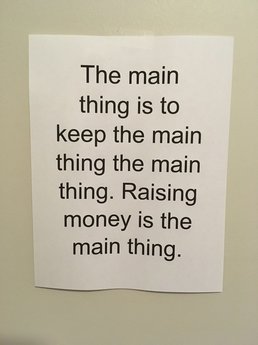
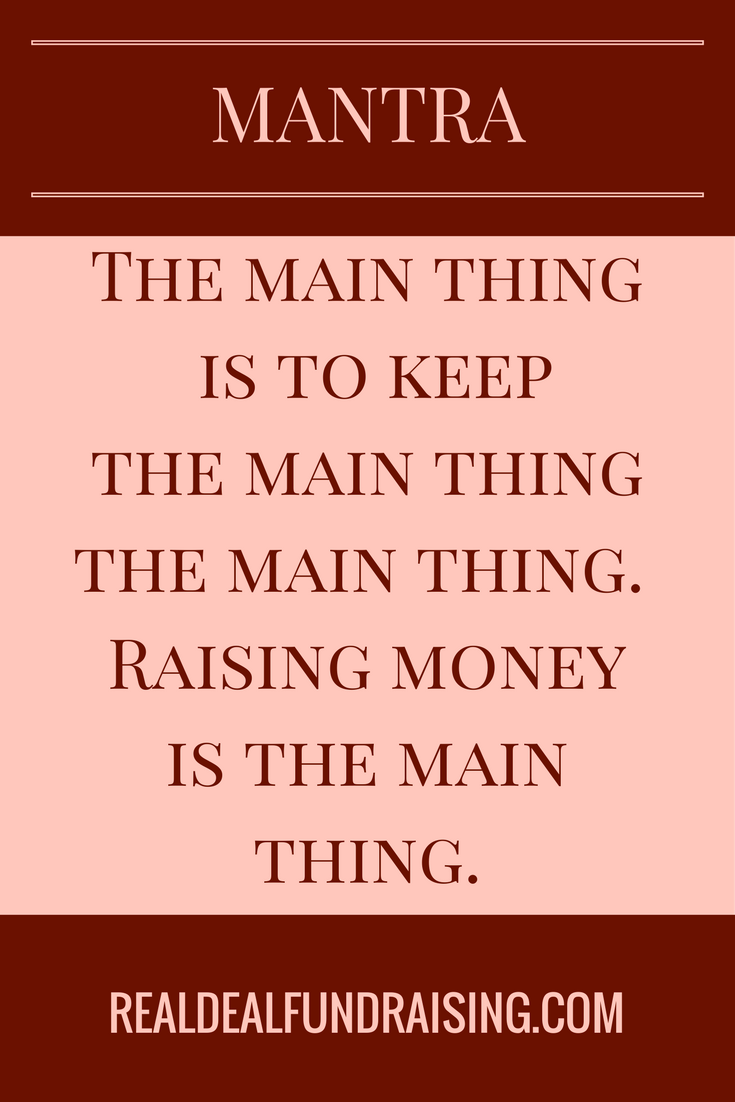

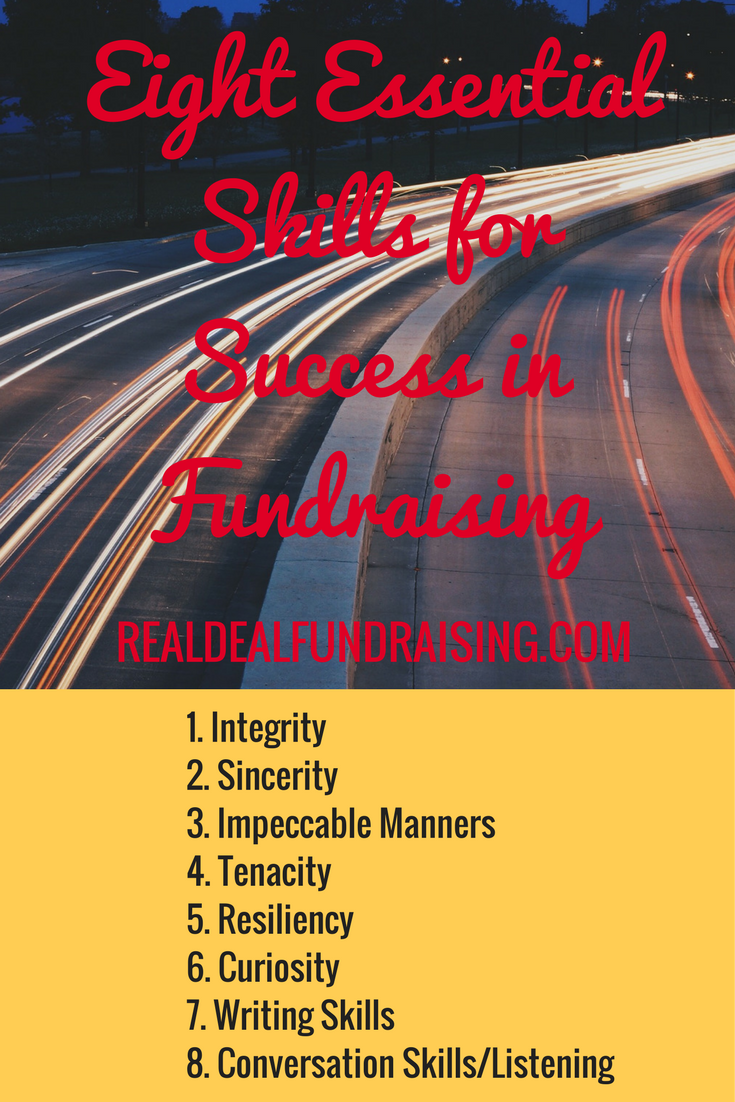
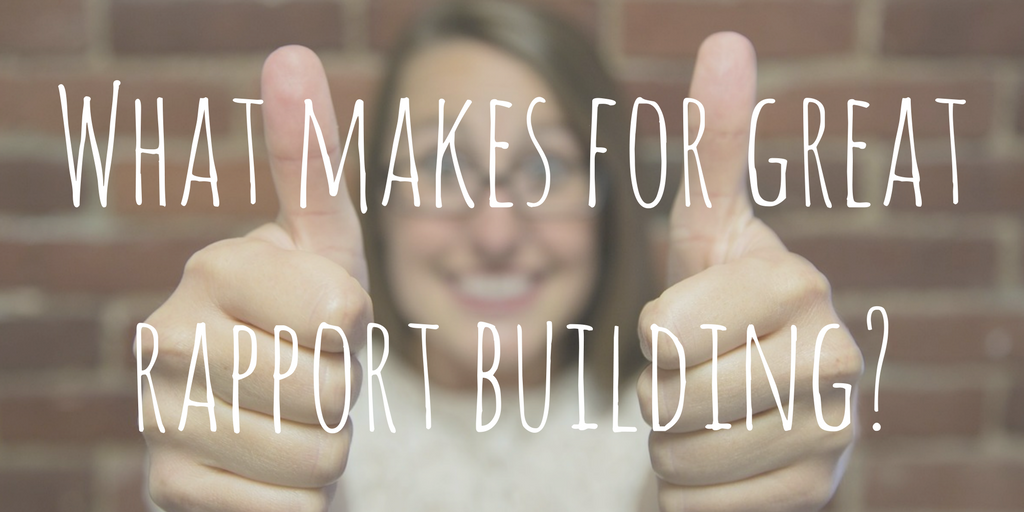
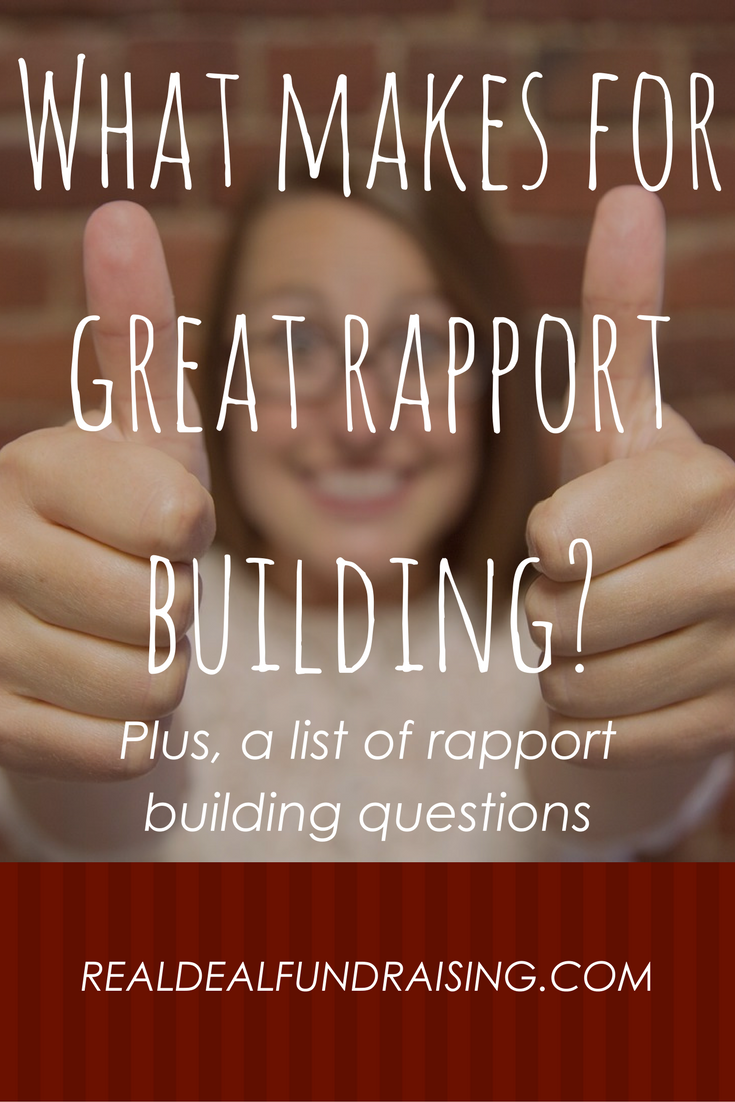


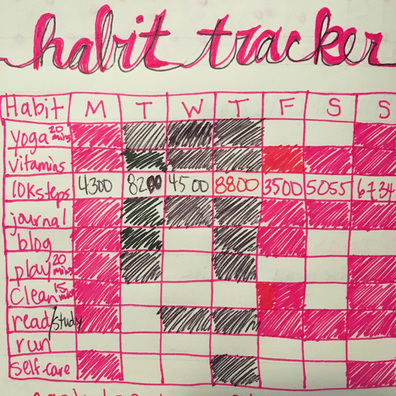

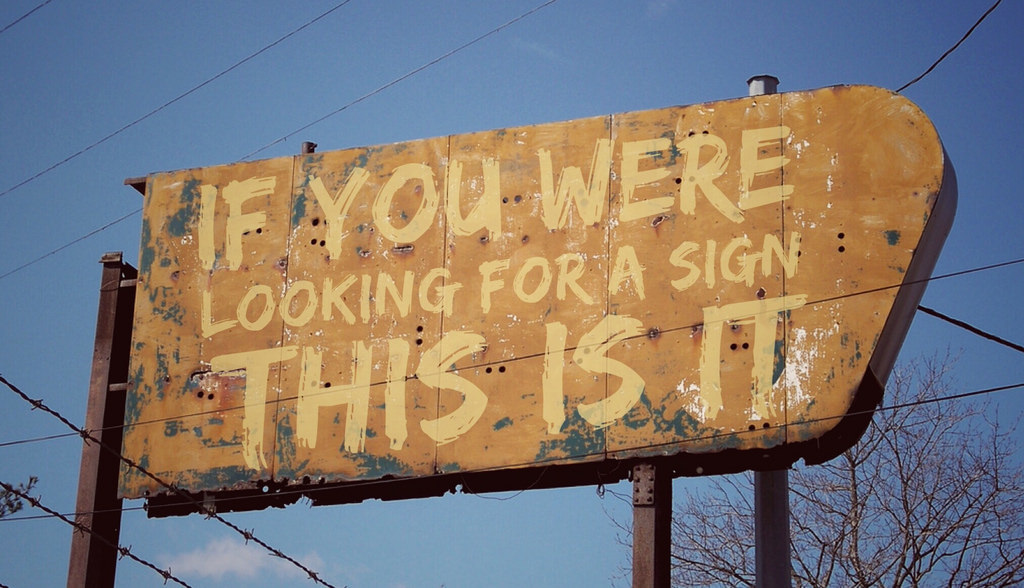
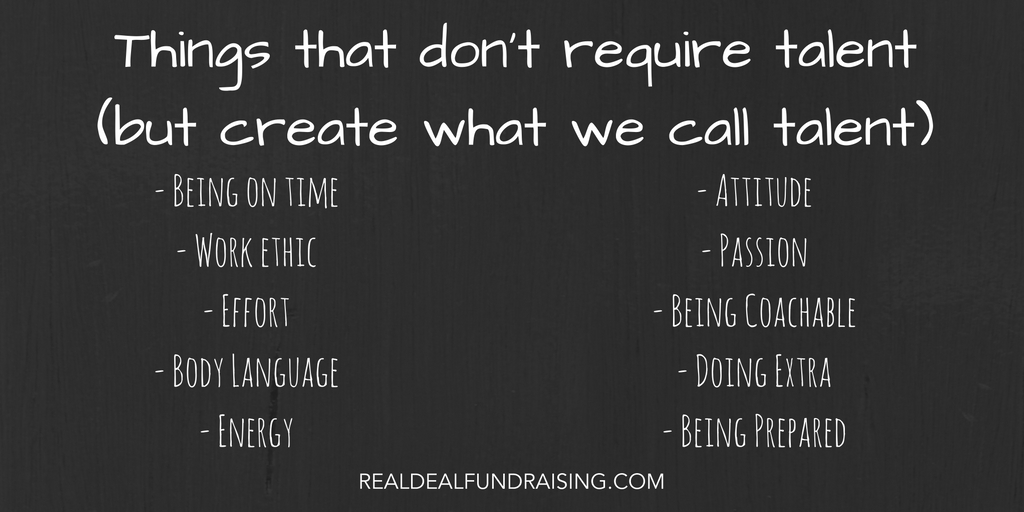

 RSS Feed
RSS Feed
